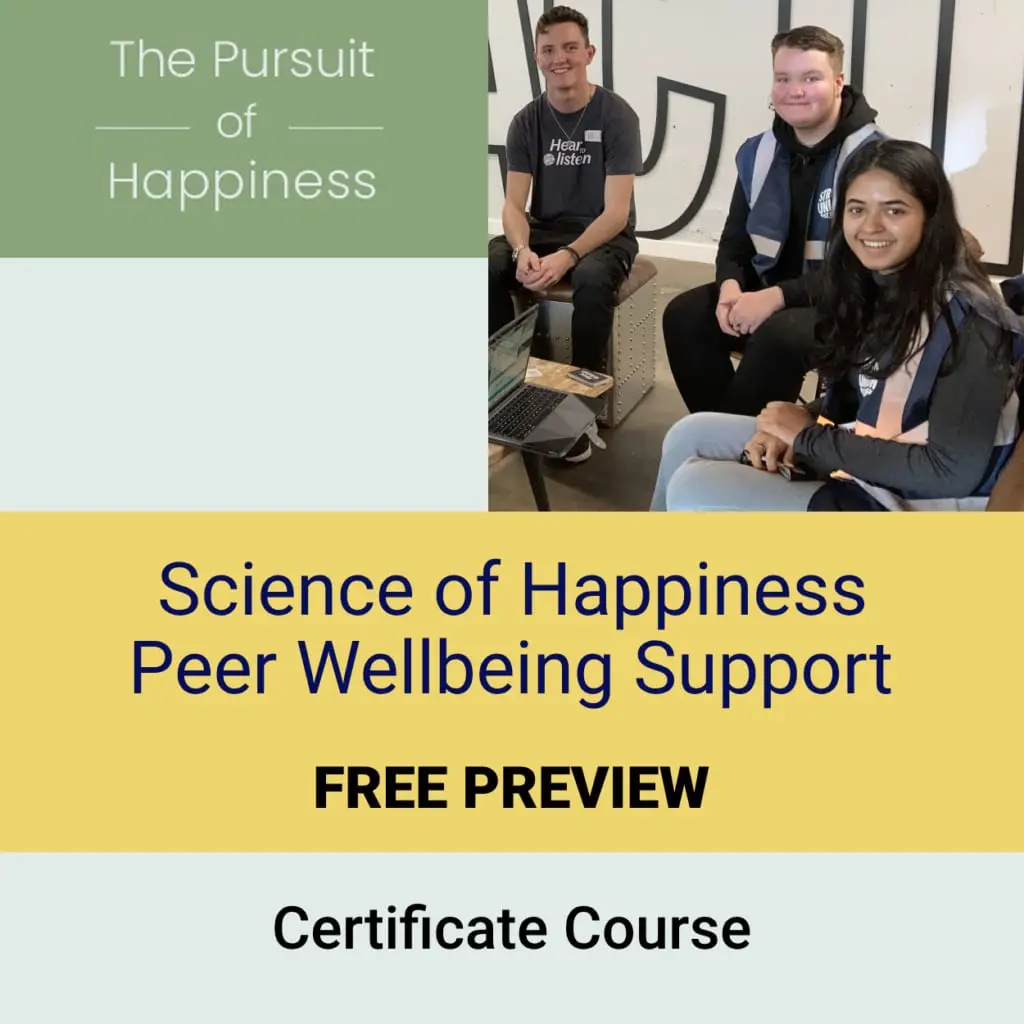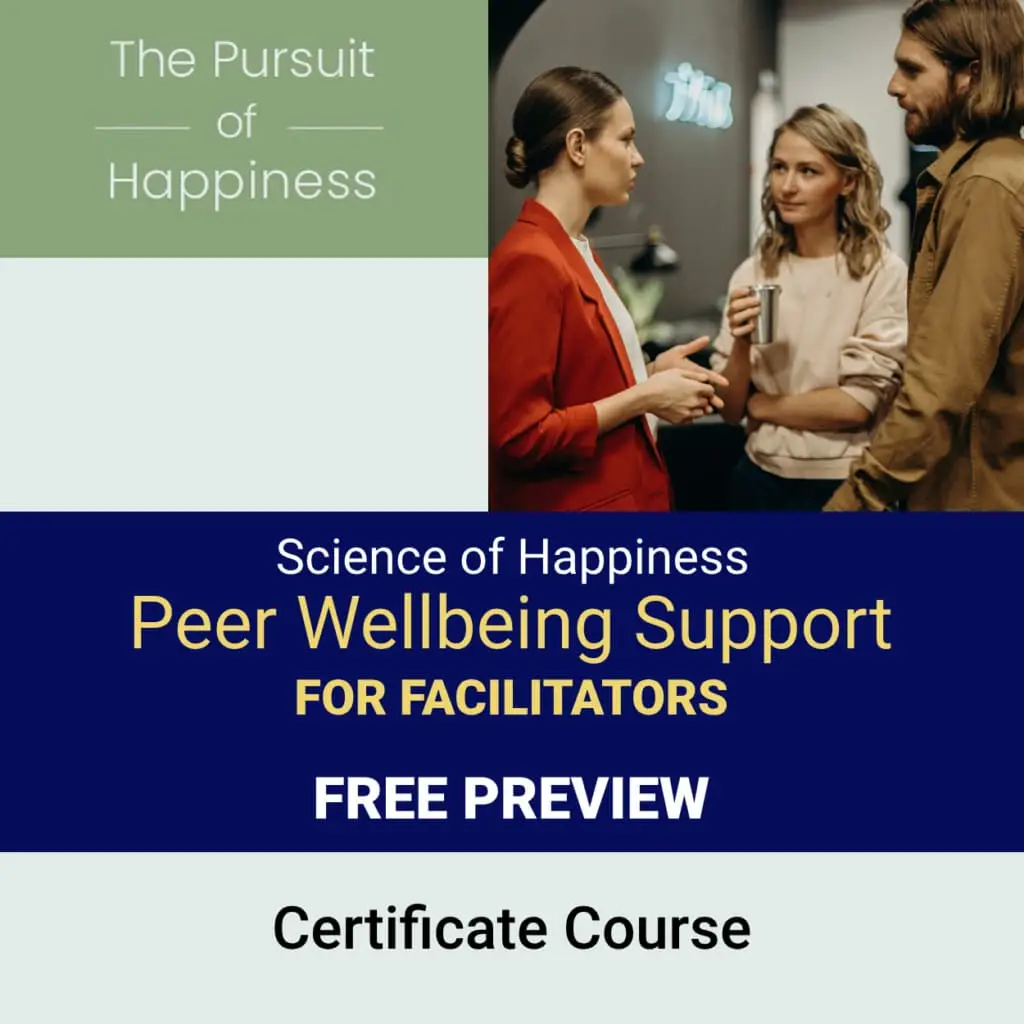Are you constantly asking, “Why am I so depressed?” and struggling to find a plausible explanation? Then you are not alone. While identifying the cause of depression can sometimes be straightforward, such as genetic factors or enduring a tragic event, there are countless individuals who feel depressed without any apparent reason.
This phenomenon is closely tied to what we refer to as the “Depression Pandemic.” A significant percentage of people, particularly American teens, are grappling with depression at an alarming 44% rate. This epidemic is related to the absence of healthy habits that are vital for our well-being. Simple actions such as engaging with others, immersing ourselves in nature, and demonstrating care and empathy towards one another have become increasingly neglected.
In this article, we will discover the impact of your daily habits on your emotional well-being. We will explore how lacking some habits can be the underlying cause of depression and, more importantly, how you can overcome depression by harnessing the science of happiness.
Hidden Reason of Depression and Happiness: Our Habits
Happiness is a multifaceted concept influenced by various factors, including:
- Genetics
- Environment
- And our own life skills or habits.
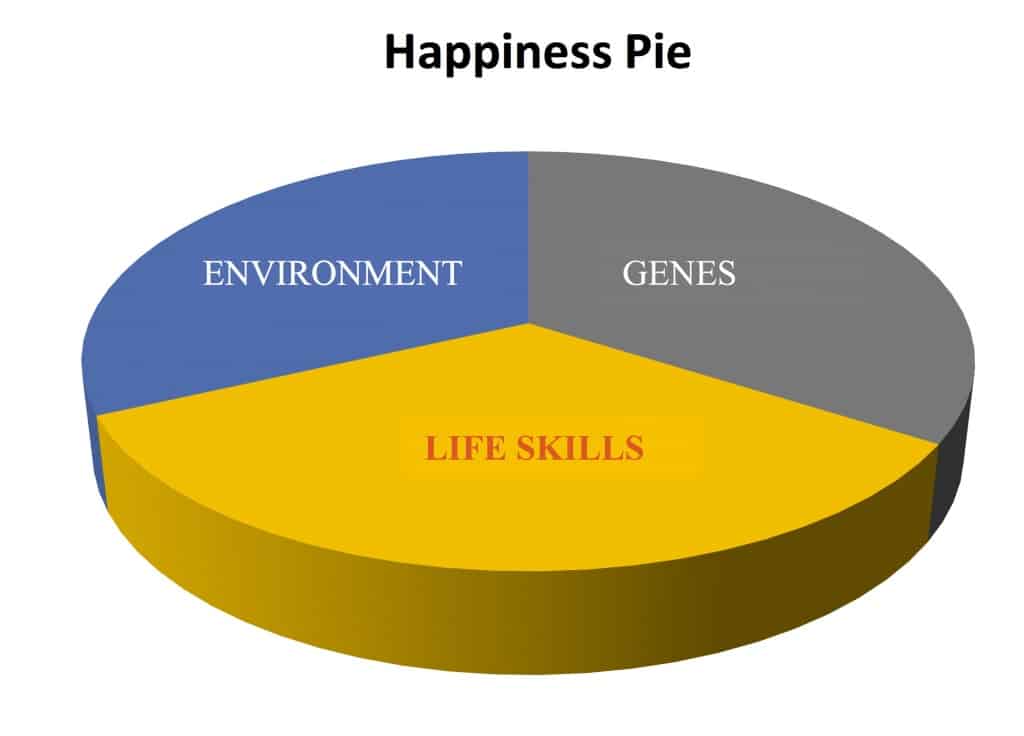
While some individuals may have a genetic predisposition to mental illnesses, and external factors like job loss or the loss of a family member can certainly contribute to feelings of depression and sadness, there is another often overlooked aspect that can significantly impact our emotional well-being: our way of life and the habits we cultivate.
In today’s fast-paced and interconnected world, we are bombarded with countless stressors and distractions that can take a toll on our mental health.
- The excessive pressure of being liked by others on social media
- Following unhealthy diets that disrupt our hormonal balance
- Neglecting regular exercise and sleep
- Becoming excessively focused on individual success while missing out on socializing opportunities
These are just a few examples of how our habits can negatively affect our emotional state.
The bright side is: We always have a chance to change our habits and protect ourselves from depression and anxiety. While we can’t change our genetics or quickly fix the effects of a job loss during an economic downturn, we can definitely change how we live our lives. Starting tomorrow, you can take charge of your happiness. By practicing the seven habits that we will discuss in detail, you can become happier and defend against various mental illnesses, including depression.
Science of Happiness: Overcome Depression
Positive psychology, a field dedicated to understanding and enhancing well-being, has identified seven habits that can help combat depression and promote happiness. By incorporating these habits into your daily life, you can empower yourself to overcome depression and cultivate a more fulfilling existence.
- Strong Relationships: Nurturing meaningful connections with others is vital for happiness. Invest time and effort into building and maintaining supportive relationships with family, friends, and your community.
- Cultivate Kindness: Acts of kindness not only benefit others but also bring immense joy to yourself. Engage in random acts of kindness, practice empathy, and contribute positively to the lives of those around you.
- Find Your Flow: Discover activities or hobbies that captivate your interest and provide a sense of flow, where you lose track of time and immerse yourself in the present moment. Engaging in activities that bring you joy and a sense of accomplishment can have a positive impact on your mental well-being.


- Act Responsibly for Your Physical Well-being: Take charge of your physical health by adopting healthy habits. Focus on nourishing your body with a balanced diet, ensuring adequate sleep, and engaging in regular exercise.
- Find Your Strengths and Use Them for Others: Identify your unique strengths and talents, and find ways to utilize them for the benefit of others. Sharing your strengths not only enhances your own well-being but also creates a positive impact on those around you. Remember unique strengths are not world changing capacities most of the time, like finding a technology to solve the energy crisis. A smiling and kind waiter can have a positive impact on a customers’ day, by just this simple act. You too can discover your unique strengths and use them for the good of society.
- Enhance Your Sense of Meaning: Seek out experiences that contribute to your sense of purpose and meaning in life. Explore practices such as yoga, meditation, spending time in nature, or engaging in spiritual pursuits that align with your values and provide a deeper sense of connection.
- Maintain a Positive Mindset: Cultivate an optimistic outlook on life by focusing on gratitude, practicing positive affirmations, and reframing negative thoughts. “Growth Mindset” not only enhances your happiness but also assists you to become more successful by learning from your mistakes.

If you are wondering how you are currently embodying these habits, we invite you to take our happiness quiz. This quiz will provide valuable insights into your strengths and identify areas for improvement, helping you further develop your happiness practices.
To delve deeper into each of these habits and learn how to apply them in your life, we offer three different happiness courses. These courses provide:
- In-depth guidance
- Practical exercises
- And strategies for incorporating these 7 habits into your daily routine.
7 Steps to Implement the Science of Happiness into Your Life
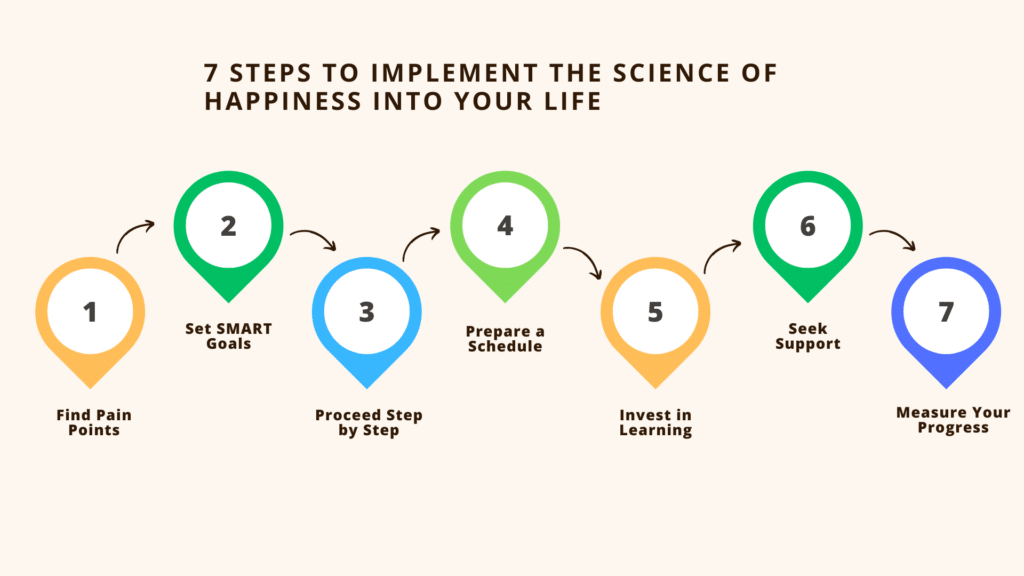
1. Determine Your Current Pain Points
Start by identifying the areas in your life where you feel the most need for improvement. Our happiness quiz can provide valuable insights into which specific habits of the science of happiness may require attention. By understanding your weaknesses, you can take targeted actions to enhance those specific habits.
2. Set SMART Goals
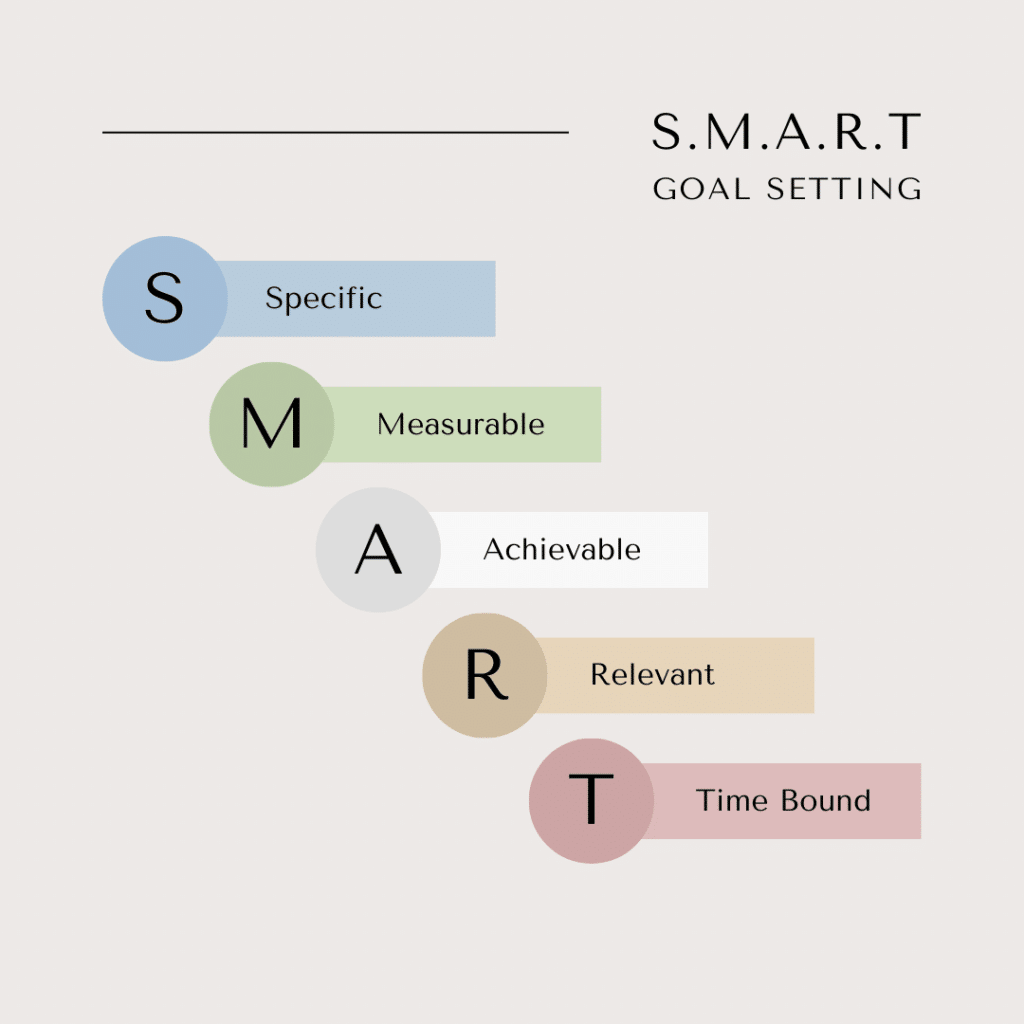
When setting goals, follow the SMART framework, which stands for:
- Specific
- Measurable
- Achievable
- Relevant
- And Time-bound.
For example, if you struggle with sleep, a SMART goal could be, “In three months, I will aim to get nine hours of sleep per night by going to bed at 10:30 PM on weekdays and 00:30 AM on Friday and Saturday nights.”
3. Divide Your Goal into Sub-Pieces
Implementing drastic changes can be challenging. Break down your goal into smaller, manageable sub-pieces. For instance, if you want to learn to play the guitar as a new hobby, start with simple melodies and gradually progress to more complex jazz harmonies over time.
4. Prepare a Schedule
Discipline is crucial for acquiring new habits. Create a schedule that outlines when and how you will practice each habit. For example, if spending time in nature is meaningful to you, set aside specific times each week for a nature walk and stick to that schedule unless unexpected events disrupt it.
5. Invest in Learning
Continuous learning is essential for personal growth. Invest time and effort in improving yourself in areas relevant to each habit. For example, if you perceive your unique strength as writing informative blogs about depression, take online courses or read books on writing to enhance your skills.
6. Seek Support
We are social creatures, and learning from others can greatly accelerate our progress. Engage with others who share similar goals or habits and seek their feedback and support. By doing so, you not only improve your habits but also build meaningful connections with others.
7. Measure Your Progress
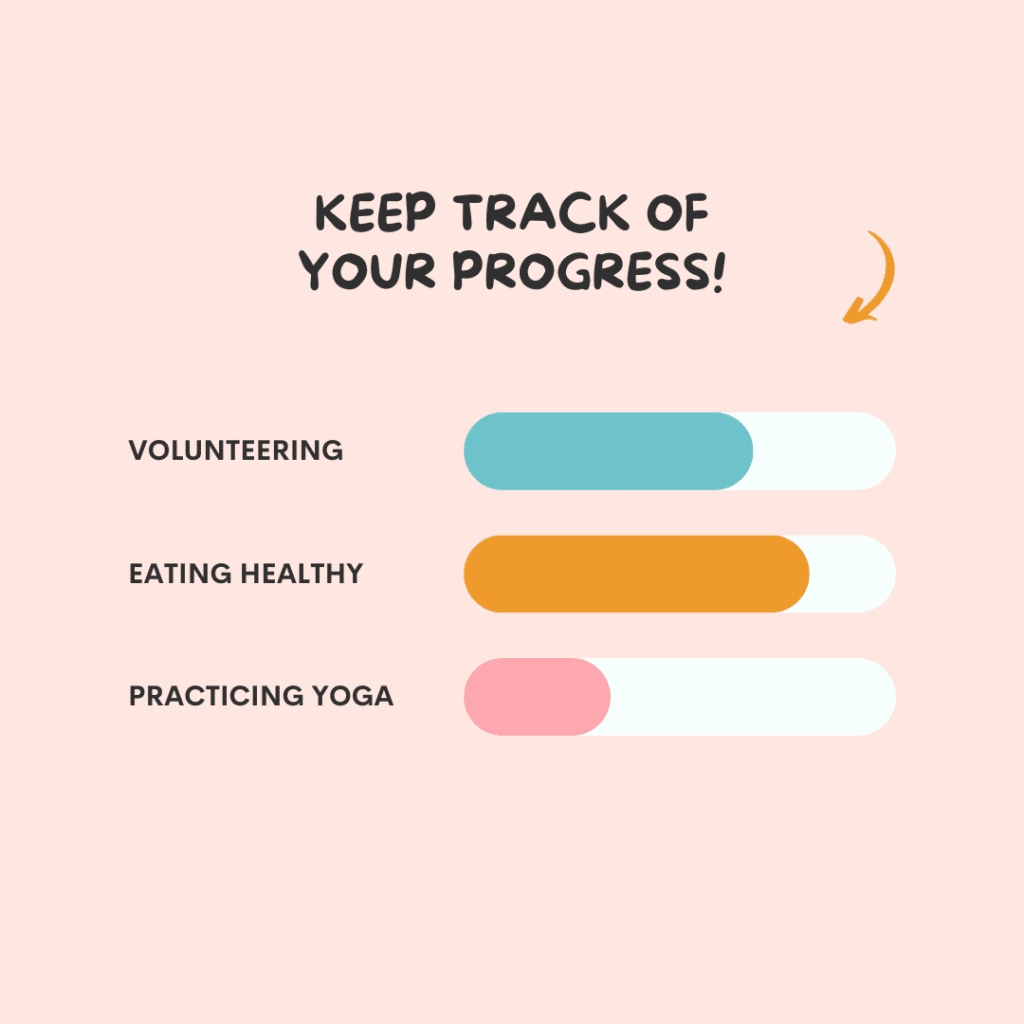
Embrace challenges and regularly measure your progress. Set milestones or metrics to track your improvement. For example, if you are working on cultivating kindness, you can track the number of monthly donations you make or the acts of kindness you perform. Remember, our happiness quiz is available for periodic self-assessment, allowing you to track your overall score and gain insights into your progress towards a happier life.






